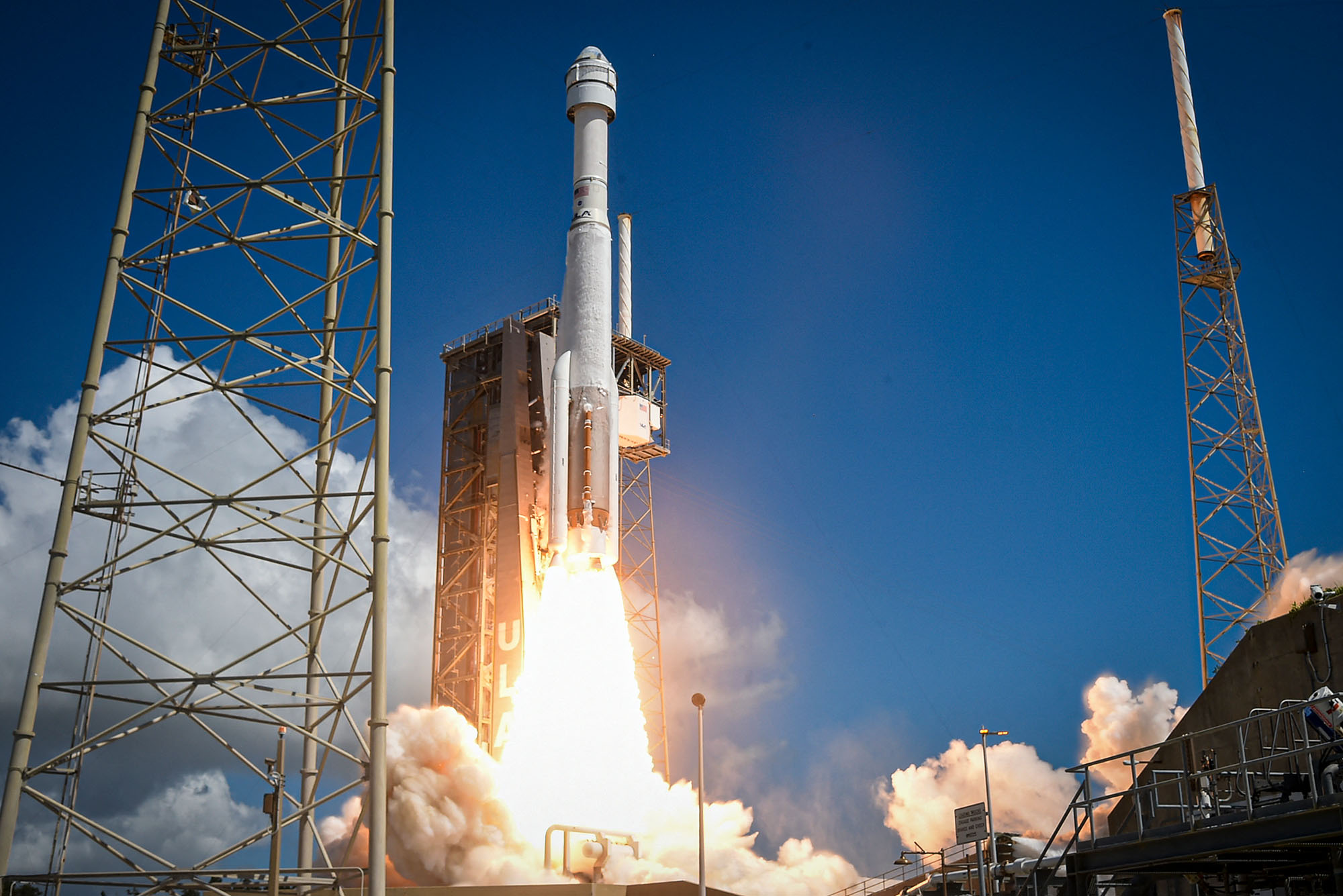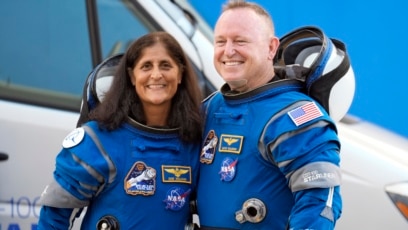Experts Question Boeing’s Space Struggle: Starliner’s Impact
- Update Time : Monday, September 2, 2024

Boeing’s space business faces uncertainty following the Starliner’s technical setbacks. The aerospace giant must reassess its strategies to remain competitive in space exploration.
Boeing, a titan in the aerospace industry, is currently grappling with the repercussions of the Starliner spacecraft’s failures. These setbacks have cast a shadow over the company’s ambitious plans to secure a significant share of the space market. With the space industry evolving rapidly, Boeing’s challenges with the Starliner—a key component of NASA’s Commercial Crew Program—have raised questions about its future prospects.
The company now finds itself at a critical juncture, needing to restore confidence in its technology to maintain its reputation and stake in the increasingly crowded arena of space exploration. As competitors like SpaceX continue to make strides, Boeing’s journey ahead will require swift and decisive action to correct course and push the boundaries of human spaceflight.
Boeing’s Space Ambitions
The Starliner spacecraft is Boeing’s bid in the commercial spaceflight market. Its mission: to transport astronauts to the International Space Station (ISS). Yet, recent failures cast doubt on its future. These setbacks place Boeing behind competitors like SpaceX and Blue Origin, who have shown more consistent success.
| Company | Spacecraft | Success Rate | Notable Achievements |
|---|---|---|---|
| Boeing | Starliner | Low | – |
| SpaceX | Crew Dragon | High | Crewed ISS missions |
| Blue Origin | New Shepard | High | Suborbital flights |
Boeing’s tech hiccups contrast with SpaceX’s streamlined launches. Blue Origin’s advances in suborbital travel also outshine Starliner’s troubled track record. This competition shapes the quest for space dominance.
Recent Challenges For Starliner
The Starliner program has faced technical setbacks. Issues with software and hardware were noted. These problems delayed test flights.
Financial implications are also significant. The program’s cost has risen. Delays mean more money spent. Investors and stakeholders are concerned. This impacts Boeing’s space business reputation.
Expert Analysis On Starliner’s Troubles
Boeing’s Starliner has faced multiple setbacks, raising concerns among space industry experts. Technical glitches and test mission failures have cast doubt on the program’s future. Analysts argue that these issues could impact Boeing’s competitiveness in the burgeoning space market.
Industry insiders stress the importance of reliability and safety in space ventures. They suggest that Boeing must address these problems to regain trust. Financial analysts are watching Boeing’s next moves closely, as the company’s space business is at a critical juncture.
Despite these challenges, some experts remain hopeful. They acknowledge the complexity of space technology and the potential for Boeing to learn from these experiences. The consensus is clear: Boeing’s response to these failures will be crucial for its space business trajectory.

Credit: www.bu.edu
Impact On International Space Station Missions
The Starliner failures have led to significant delays in missions to the International Space Station (ISS). These setbacks necessitate the rescheduling of planned launches and crew changes. The ISS program now increasingly relies on the Russian Soyuz spacecraft to ferry astronauts. This dependency raises concerns about access to the ISS in case of diplomatic tensions. The situation underscores the need for reliable alternatives in space transportation.
Commercial Space Race Dynamics
The space race is now more thrilling. Boeing and SpaceX are big names. They try to lead in space travel. But, Boeing faced Starliner failures. This made experts worry. They wonder about Boeing’s future in space.
SpaceX, on the other hand, has seen success with its missions. This includes sending astronauts to space. Many people see SpaceX as the front runner now.
New companies are also joining the race. They want a piece of the space pie. This competition makes the market exciting. Everyone is watching to see who will win.
Future Of Human Spaceflight
The future of human spaceflight is at a crossroads, with Boeing’s Starliner setbacks sparking widespread debate. The aerospace industry must prioritize innovations in space travel to ensure progress does not stall. Cutting-edge technology is vital to compete and lead in the new space race.
Safety and reliability are paramount as we push the boundaries of exploration. The recent Starliner failures highlight the need for rigorous testing and quality assurance. Trust in spacecraft is built on a foundation of successful missions and the ability to learn from setbacks.
| Innovation | Safety |
|---|---|
| Advanced propulsion systems | Enhanced launch protocols |
| Reusable spacecraft designs | Redundant safety features |
| Artificial intelligence guidance | Thorough pre-flight checks |
Regulatory Hurdles For Starliner
The Starliner program faces intense scrutiny from the Federal Aviation Administration (FAA). Meeting the FAA’s rigorous safety standards is a significant hurdle for Boeing. The certification process is complex and lengthy, requiring extensive testing and data analysis.
Boeing must demonstrate that Starliner can safely transport astronauts. This includes reliable performance in critical flight scenarios. Challenges in meeting these requirements have led to delays and concerns among space industry experts.

Credit: learningenglish.voanews.com
Stakeholder Confidence And Investment
The Starliner failures have made many investors worried. Boeing’s space business seems less appealing now. Some people are pulling their money out. Others are watching closely, hoping for a turnaround.
Government contracts are a big deal for Boeing. These contracts bring in lots of money. After the failures, getting new contracts might be harder. This could hurt Boeing’s future projects and their wallet.
Credit: www.google.com
Frequently Asked Questions
What Caused The Starliner Failures?
Boeing’s Starliner encountered technical issues, including valve malfunctions and software glitches. These complications arose from design and testing oversights, hindering the spacecraft’s operational readiness and delaying its missions.
How Will Starliner Setbacks Affect Boeing?
Starliner setbacks have raised concerns over Boeing’s competitive edge in the space sector. Delays and increased costs may impact investor confidence and Boeing’s ability to secure future contracts, affecting its market position.
What Are Boeing’s Plans For Starliner Recovery?
Boeing is committed to resolving Starliner’s technical challenges. They plan to implement rigorous testing and thorough reviews to ensure future missions meet safety and performance standards, aiming for successful crewed and cargo flights.
Can Boeing Bounce Back In The Space Industry?
Boeing has a strong history in aerospace. Despite Starliner setbacks, with a dedicated recovery plan and adherence to stringent quality controls, Boeing can potentially regain its reputation and continue contributing to space exploration.
Conclusion
Boeing’s space ambitions face scrutiny after the Starliner’s hiccups. Industry watchers are keenly observing how the aerospace giant will navigate these challenges. Confidence in their space sector’s prowess hangs in the balance. It’s clear that Boeing must address these issues head-on to reassure stakeholders and maintain its competitive edge in the race to the stars.


















Leave a Reply